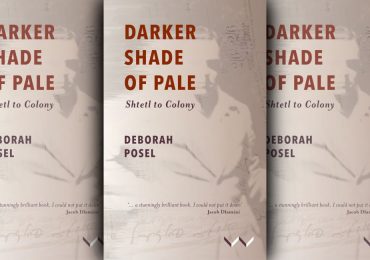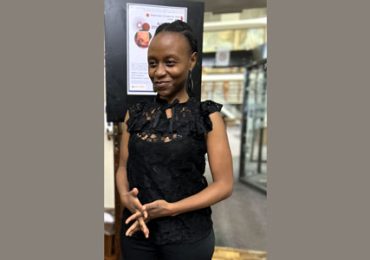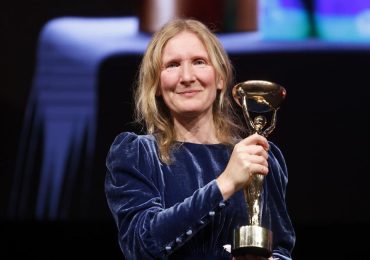Phil Bonner, leading historian and Africanist scholar, passed away in Johannesburg on Sunday, 24 September, aged seventy-two.
Bonner was Professor Emeritus of History at Wits University, and published widely on urban and labour history.
During his career, Bonner held the National Research Foundation (NRF) Chair in Local Histories and Present Realities, as well as the Chair of the History Workshop, and sat on the editorial committee of the South African Democratic Education Trust. He was historical consultant to and executive producer of a six-part documentary television series entitled Soweto: A History, which was screened in Britain, Australia and South Africa, to considerable critical acclaim, and was co-curator of the Apartheid Museum in Johannesburg.
Bonner is the author of Kings, Commoners and Concessionaires: The Evolution and Dissolution of the Nineteenth-Century Swazi State (1983), Soweto: A History (with Lauren Segal) (1998), Kathorus: A History (with Noor Nieftagodien) (2001), Alexandra: A History (with Noor Nieftagodien) (2008) and Ekurhuleni: The Making of an Urban Region (with Noor Nieftagodien and Sello Mathabatha) (2012).
Bonner’s frequent literary collaborator, Noor Nieftagodien, Head of the Wits History Workshop, writes:
Obituary: Professor Phil Bonner (1945—2017)
Emeritus Professor Phil Bonner joined the Wits History Department in 1971 and played a leading role in the development of African History at the university and nationally.
He was part of a cohort of young revisionist and Africanist scholars who challenged liberal orthodoxies in the academy and produced new histories that emphasised the experiences of the black majority. His book on the Swazi kingdom, Kings, Commoners and Concessionaires, exemplified this scholarship.
Professor Bonner was also heavily involved in the development of independent black trade unions from the 1970s and in the early 1980s served as FOSATU’s Education Officer. In the late 1980s he offered workers’ education to a number of COSATU’s affiliates. At the same time, he wrote various histories of labour struggles and was a member of the editorial board of the South African Labour Bulletin for nearly thirty years. His involvement in the anti-apartheid struggle led to his detention and threat of deportation.
Professor Bonner was a founding member in 1977 of the History Workshop and was its head from the late 1980s until his retirement in 2012. The History Workshop pioneered Social History—history from below—in South Africa and under his supervision numerous postgraduate students undertook original research on the lives and struggles of black workers, women, youth and migrants in locations, mines, factories and villages. His own research focused on squatter movements, the complexities of urbanisation and histories of black resistance. Oral history was central to the endeavour of uncovering these hidden histories and Professor Bonner was a leading exponent of recording the life histories of ordinary and extraordinary people. He was widely acknowledged as one of the country’s leading historians and his expertise was called on in the production of liberation histories and the development of museums (including the Apartheid Museum). Under his leadership, the History Workshop became more actively involved in public history and heritage. From the late 1990s he collaborated in projects that produced histories of Soweto, Ekurhuleni and Alexandra.
Professor Bonner was the head of the History Department from 1998 to 2003 and served on numerous committees in the university. In 2007 he was awarded a South African Research Chair in Local Histories, Present Realities. In the last few years he was involved in a major project on underground struggles and was completing two books on this subject. Professor Bonner was an outstanding lecturer, supervisor and mentor whose legacy lives on not only in a significant body of research and writing, but in the many students he inspired in more than four decades of service to the university.
He is survived by his wife, Sally Gaule.
Hamba Kahle!
The Wits History Workshop has encouraged colleagues and friends to share their memories of Bonner on Facebook, which they we will gather to give to his partner. In addition, there will be a message book in the History Workshop main office at Wits for those who would like to leave memories and condolences.
Jonathan Hyslop, Professor of Sociology and Anthropology and Africana and Latin American Studies at Colgate University, has allowed us to share the following tribute from Facebook:
Dear Phil,
I remember all those great stories that you would tell so well, over a pint in the post-graduate club or a glass of wine in your garden with the hadedas squawking in the background. So although I didn’t know you until your middle age, I can imagine you in your youth. I can see the teenager, hitch-hiking the roads of the Kenyan savannah. I know you were already the life and soul of the party when you won the crown of “Twist King of Mombasa”. I see you and your friend Walter playing outrageous pranks on the students at the residence in Nottingham. I know how in more serious moments you weighed up becoming a medieval historian, but you knew Africa was what moved you.
By the time I met you, you were already inspiring students at Wits with your lectures and your crazy trips across the veld. And you felt the cause of labour deep in your soul. I remember your arrest by the security police and how we waited to hear if you were going to be deported. You were the greatest fun to spend an evening with, but you were the most steely both with friends and antagonists when it came to matters of principle.
It was a privilege to have worked with you in History Workshop, but even more to have been your friend. So now you have me sitting here with tears pouring down my face. Which you probably would find very funny – you would tell me to cheer up and check what time the pub opens. I won’t say rest in peace, for you were restless. Somewhere the grass is tall and yellow and I see you striding off towards the koppies on the horizon. You will always be walking in the hearts of the comrades you fought with, of the students who learned from you, and of the friends who loved you.
Hamba Kahle.
A number of influential academics and thinkers paid tribute to Bonner on Twitter:
#PhilBonner great historian passed. Exemplary human being, humble & dedicated to history from below @arianna_lissoni @nombonisogasa
— Raymond Suttner (@RaymondSuttner) September 25, 2017
Very sad news from South Africa. Phil Bonner was indeed a great historian–a trail-blazer. A true inspiration when I was learning the trade. https://t.co/VQX0zmeCe2
— John Edwin Mason (@johnedwinmason) September 25, 2017
#PhilBonner is no more. "Where is thy sting, O, Death! Grave, where thy victory?" John Bowring @RaymondSuttner @arianna_lissoni @Wits_News https://t.co/5prU8RCK61
— Nomboniso Gasa (@nombonisogasa) September 25, 2017
Deeply saddened Phil Bonner has left us. Inspired my love for South African social history, encouraged me to work on fútbol, generous soul.
— Peter Alegi (@futbolprof) September 25, 2017
Raising a glass to Phil Bonner tonight, a brilliant historian of South Africa, who has passed away.
— Rick Halpern (@halpernrick) September 26, 2017
RIP Phil Bonner. You taught important things to a much wider range of people than just your students. https://t.co/dCRAc5A2eK
— Gillian Godsell (@gilliangodsell) September 26, 2017
Rest in peace, Philip Bonner, one of South Africa's — and the world's — greatest urban historians.
— Benjamin Bradlow (@bhbradlow) September 25, 2017
Rest in peace, Professor Bonner.
Work available to read online
- ‘Desirable or Undersirable Sotho Women?1 Liquor, Prostitution and the Migration of Sotho Women to the Rand, 1920—1945
- Kings, Commoners and Concessionaires: The Evolution and Dissolution of the Nineteenth-Century Swazi State






Phil Bonner changed my life. I realized this to the appropriate full extent when I got news of his death while in Bellagio where I was accompanying Karen Barnes who had been awarded a Rockefeller residency. I have the great good fortune of being Karen’s beloved.
I met Phil in January 1980. He had agreed to supervise my Masters thesis. Prior to this I’d studied history at Rhodes where my mentors were Julian Cobbing and Jeff Peires. It was the two of them who encouraged me to ‘escape’ Rhodes and to expose myself to the revisionist debates of the time at Wits. They both recommended Phil who was an integral part of the revisionist moment when African history was inserted into old style university curricula and the idea that South Africa history could be reduced simply to a story of white and black with a backdrop of the civilizing mission and the inexorable (bloodless and beneficial) march of industrialization was challenged.
South Africa in 1980 was a tense place and having left sympathies made for anxiety and feelings of vulnerability and isolation. Wits was huge and alien to me and it was Phil who helped me slowly to feel at home. His values were absolutely critical – I could relate to them, and they felt ‘right’. He was not sentimental about politics but he was unwavering in his belief in a struggle for a better South Africa and in his belief that in this struggle, black workers had a crucial role to play. But what possibly played the biggest initial role in my connection with Phil was our mutual love of Leeds United Football Club. There were not many Leeds supporters in South Africa in those days (and there are fewer now) so it was a delight to find a man who actually subscribed to the Leeds Green paper which carried all the local news of the team. Leeds United was the solid ground that we could occupy when my difficulty with Althusser and modes of production overcame me. I found the social history approach championed by the History Workshop much easier to understand but Phil wouldn’t allow me to sit in this comfortable chair. He insisted that I read Althusser, Hindess and Hirst and Poultantzas but, thank god, not Deleuze or Barthes.
I spent two whole years at Wits doing research on farming in the Eastern Transvaal (Middelburg). During this period, the anti-apartheid struggle intensified, I got married and played for the Yeoville Red Herrings (captained by John Perlman). Phil played for GOTSQ (Gramsci on the Southern Question). These were years that I finally began to (sort of) understand theory and its role. Phil can take virtually all of the credit for this. I am stubborn and avoid certain intellectual challenges and it says a lot about Phil that he was able to entice, cajole and force me to move into deeper waters. I am pleased that, many years later, I wrote to Phil to communicate my deep thanks for this inestimable gift.
Phil was not the most diligent supervisor. I would get grumbly with him when he didn’t read the work that I submitted. Looking back on this, I can’t say I really blame him. Some of those drafts were truly shite. Beyond that frustration, however, I continued to feel as though Phil was part of a broad political and academic movement, at times amongst the leadership of that movement, and that I wanted to be in his slipstream. The people he hung out with were people that espoused the same values that I had and Phil would introduce me to these scholars and help me to become part of a community.
Phil and I had a routine. Every fortnight I would meet him in his Office and he would talk about my work, his work and the destiny of the country. He would sit in his chair and look out, trying to frame a thought. He’d tug his short red beard, ummm a bit, and then deliver the most wonderfully crafted sentence or statement. Phil was so very thoughtful, careful and modest. He was also a very good historian, a respecter of ‘facts’ with no tolerance for ideological abuse. The other thing that Phil didn’t do was spoon-feed. I longed to be a fledgling, beak wide-open, waiting to be fed wisdom by the parent. Phil resisted me, firmly, heroically. And today I (mostly) stand on my own two pins.
From the seriousness of my exchanges with Phil my memory moves me to Phil laughing. He had a wonderful, unique chuckle, a mischievousness that was most evident when he was pulling Bruce Murray’s leg. They sparred a lot. My best memory is of Bruce at one or other Departmental function that was off campus. The food was slow in coming. Bruce got the ear of a waiter and said, irritatedly, ‘Bring the food, now, chop chop!’ Phil had had a few beers by this time and he guffawed. “Ah”, he said, “another great example of sympathy for the working classes, cultural sensitivity and a triumph of cross-class communication”.
Phil and I also had other shared passions, including spear-fishing. We planned to take a trip to the wild coast (I worked at the University of Transkei in Mthatha from 1982) but this never happened. And in fact I saw less and less of Phil as our paths diverged with me moving out of the history circuits. But he often came to mind – engaging in the African Studies Institute seminar series, chatting animatedly with Dave and Eddie Webster, off to play squash (with Ian Phimister?) and heading for the staff club for a pint after work.
What more can one ask of an academic than he be generous, amiable, intelligent, open-minded but also principled, passionate, fun-loving and flawed. Phil has been a model for me.
Thank you, Phil.
Robert Morrell
Bellagio, 27 September 2017
Lovely tribute to Phil – captures the man in all his complexity. I had not seen him for some time, but feel incredibly sad at his passing. He was so much part of many of our lives, academically, intellectually, socially, politically, in those Johannesburg years.
Because I am sure we are all committed to history rather than false news, a small correction: Phil Bonner played soccer for Erich Gumpertz (a maker of fine tobacco who gave his name to the team for obviosu reasons), not Gramsci on the Southern Question (GOTSQ). He was more of an Altusserian and Poulantzian than a Gramscian in those days. man. When he still lived in Bellevue, and I in Yeoville, I’d sometimes fetch him for Gumpertz games on a Sunday morning at Marks Park, where he would do duty as a lurking striker.
Prof Bonner supervised my MA thesis at Wits in the early 2000’s. I’d spent 4 years cocooned as an undergrad at Rhodes under the tutelage of Julian Cobbing and Paul Maylam and on an early evening walk to the archives soon after arriving, I strolled next to him, earnestly telling him all about my 4 years. I felt so grown up. I was 22. He laughed and said “ag, everyone knows they don’t teach real history at Rhodes”. I was shocked and highly offended. But it was exactly what I needed to help me adjust to the formidable and foreign Wits. He showed me I had a blank slate to finally forge my own path and that’s exactly what I did.
I spent countless hours waiting outside his (locked) office for him (he was a terrible supervisor) and left 100 messages with the history secretary (which he never returned) but to this day, I carry in my purse the scrap of paper he wrote on with the marks for the first paper I submitted to him – 75%. It reminds me when I am feeling low that I actually had something valuable to say. I realise now that he was the person I wanted to impress the most out of any academic I’d ever been taught by. He pushed hard for me to apply for PhD funding, which I did and I was awarded a place. But, London beckoned and off I went on a gap year which turned into a gap 15 years. So we lost touch and I never went back. I often think of this as my “trousers of time” moment (see Terry Pratchett) and wonder where I would be now if I had taken that path.
I am very sad to hear of his death, even though I am so late. Wonderful memories of an extraordinary man.